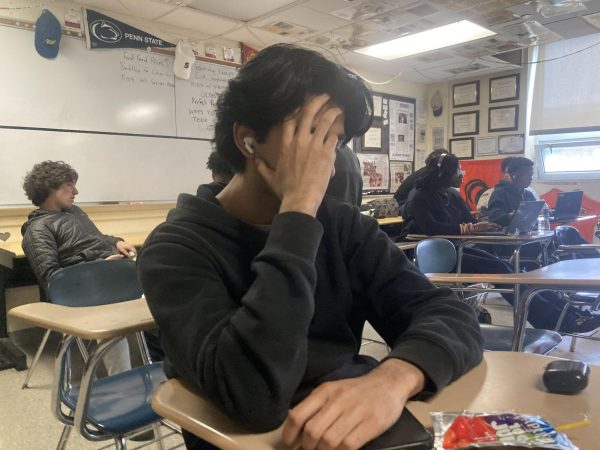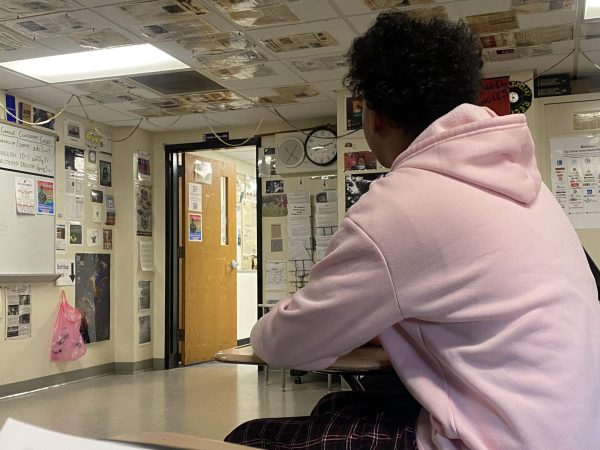The Importance of Avoiding Misinformation About Coronavirus
April 3, 2020
With everything going on right now, it is important to be cautious as to where you are getting information, and what you should keep in mind. It is important to know what is true and what has been falsified, with all media surrounding the COVID-19.
BACKGROUND:
This type of coronavirus emerged in the city of Wuhan, China, December of last year, hence the name CO(corona)-VI(virus)-D(disease)-19(discovered in 2019). Coronaviruses are ‘a family of viruses’ with varying impacts and effects on the people and different species of animals that can get them. COVID-19 is a newer type of coronavirus that can be transmitted from human to human, through the various methods of spreading germs. According to the World Health Organization, or WHO, the virus that caused this disease is known as “severe acute respiratory syndrome coronavirus 2,” or SARS-CoV-2 for short. This has caused some confusion though, as some believe that COVID-19 and SARS, the outbreak from 2003, are the same disease. That is false and one of several misconceptions I will explain below.
IS COVID-19 THE SAME AS SARS?
According to the WHO, the virus that causes COVID-19 and the one that caused SARS, or the “outbreak of Severe Acute Respiratory Syndrome” in 2003, are genetically related to each other, but the diseases they cause are different. According to Healthline, SARS was another type of coronavirus that spread quickly through respiratory droplets, but its symptoms were more severe than those of COVID-19, and therefore easier to detect. SARS had a higher death rate as well but was much less infectious than COVID-19, which is why the number of deaths has already surpassed those from SARS.
SYMPTOMS:
According to the CDC, or Centers for Disease Control and Prevention, symptoms may show up between 2-14 days after exposure, despite the common misconception that they show up after 14-27 days. This claim has been falsified and proven inconsistent as more and more data has shown otherwise. The most common symptoms include fever, cough, and shortness of breath, although symptoms may depend on the severity of the case. The more severe infections may cause pneumonia, severe acute respiratory syndrome, or even death.
ARE YOUNGER PEOPLE UNAFFECTED BY COVID-19?
No, there are many misunderstandings surrounding this claim. It seems that some people are still unaware of the impact COVID-19 could have on them, regardless of age. According to the CDC’s latest updates, the disease does mainly impact those who are older, but people of all ages can be infected. In fact, about one in five people in the US hospitalized with COVID-19 are between ages 18 and 44. Older people, and those with pre-existing respiratory and medical conditions (such as asthma, heart disease, or diabetes), are more vulnerable to more severe infections from the virus, but that does not mean younger, healthy people are not susceptible to getting it. It is also important to keep in mind that although someone younger is likely to survive, they can still transmit it to others who are susceptible to getting more serious infections, not only putting them at risk but also raising the number of cases in general.
PRECAUTIONS TO TAKE:
WHO is encouraging people of all ages to take steps to protect themselves, and others, through practicing proper hygiene, and urging everyone to “DO THE FIVE,” which advocates the 5 steps: wash your hands, cough into your elbow, don’t touch your face, keep a safe distance from others (or practice social distancing), and stay home unless necessary.
According to the WHO, there are many myths about how to prevent yourself from getting COVID-19, which include using hand dryers or spraying alcohol/chlorine over one’s body to kill the virus, regularly rinsing your nose with saline, eating garlic, taking hot baths, and taking antibiotics. None of these are effective in any way at preventing the disease, and more details as to why they are ineffective can be found on the WHO website, listed at the end of this article. For example, spraying oneself with chemicals will not kill any viruses that have entered the body, and taking antibiotics is only effective when combating bacteria, not viruses like COVID-19.
There are many fallacies surrounding the discussion of COVID-19, as we are learning more about it every day. But it is important to stay aware and take the proper steps in preventing it, as it is highly infectious. As of April 1, there are 827,419 confirmed cases worldwide, 40,777
confirmed deaths, and 206 countries, areas or territories with cases, according to the WHO’s most recent updates. Although some believe that others are overreacting, in times of uncertainty, we should all be extra cautious in order to stay safe.
For more information, here are helpful, credible, and constantly updated websites that can answer other further questions or concerns;













